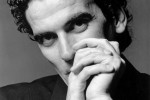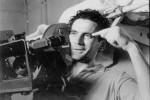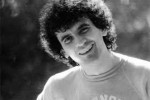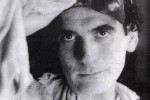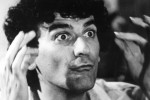2020 (EN)
|
04 June 2020
Tutte le Attività (EN) -
Anno 2020
 The fourteenth of the anniversaries is dedicated to the twenty-sixth anniversary of the death of Massimo Troisi.
The fourteenth of the anniversaries is dedicated to the twenty-sixth anniversary of the death of Massimo Troisi.
The anniversary coincides with the reopening of the Museum after the quarantine due to the covid 19 pandemic.
At 10, in full compliance with the security measures, many visitors visited the Museum and, in particular, the section dedicated to "Pino Daniele" where unpublished videos of the great musician and great actor, always fraternal friends, are kept.
Many students then connected on the museum's multimedia portal where - in the section "The great protagonists of history" - videos, images and documents on Massimo Troisi are available.
"The farewell 26 years ago: it was June 4, 1994," recalls President Capasso, a friend of Massimo Troisi and Pino Daniele.
If one is born in San Giorgio a Cremano (on the outskirts of Naples but in the heart of a devastated suburb, still in the countryside, not yet a city) and grows up in a small and overcrowded house (five brothers, two parents, two grandparents and five grandchildren), or is called Massimo Troisi or resigns to anonymity since childhood.
"Massimo decided to honor his name and to fight against a difficult fate, exacerbated from his youth by painful rheumatic fevers that produced heart failure to the mitral valve that would have been fatal to him at just 41 years old" recalls Capasso.
On June 4, 1994, just 12 hours after the end of his most ambitious and demanding film, "The Postman", Massimo slipped from sleep to death in his sister Annamaria's house in Ostia, where he had found refuge after the efforts of a set that he would not have to face.
On the eve of the "Postman", Troisi had returned to America from the surgeon (De Beckey) who had already once operated on him in secret from his heart at the beginning of his career. He knew he could not face the double effort of the ideation and interpretation (despite having left the direction to Michael Radford to get to the end of the shooting) but he chose not to spare himself to have the opportunity of Philippe Noiret in the role of the poet Neruda. He was resigned to meet his destiny, after all he had been playing hide and seek with death since ever and he often made irony outlining characters who disappear prematurely ("no, thanks coffee makes me nervous" and even titling his TV movie "Morto Troisi ... viva Troisi" (1982). Born on 19 February 1953 from a railway driver and a housewife, the "Pulcinella without mask" that the public would have loved since the beginning with "Ricomincio da tre" 1981), was formed on the tables of the stage, an instinctive heir of Eduardo and of a mocking and sore Neapolitanity who would have ferried in a different way, that of the "new Naples" of Pino Daniele and Roberto De Simone. With the group "I Saraceni "and then with the stainless friends of" La Smorfia "(Lello Arena and Enzo Decaro) he soon left the vernacular boundaries of the village success to bring his language (a lively and torrential Neapolitan, syncopated and colorful," the only language that I know to speak, to be honest ") on national television networks and then to the cinema. As had happened to Eduardo and Totò, spoken language became understandable to all beyond words, synonymous with a universal feeling in which the mask became a face and the character a universal paradigm.
The success was unexpected, sensational, immediate. It was the dawn of those '80s that brought the generation of the Moretti and the Benigni to the fore with him, but it was precisely with the Tuscan Roberto that Troisi found an instinctive empathy, celebrated by the public with the resounding success of "We just have to cry "(1984) in which his surreal" grammelot "acted as an effective counterpoint to the paradoxical historical frame of an exhilarating journey through time to the Medici Florence.
Thanks Massimo!






